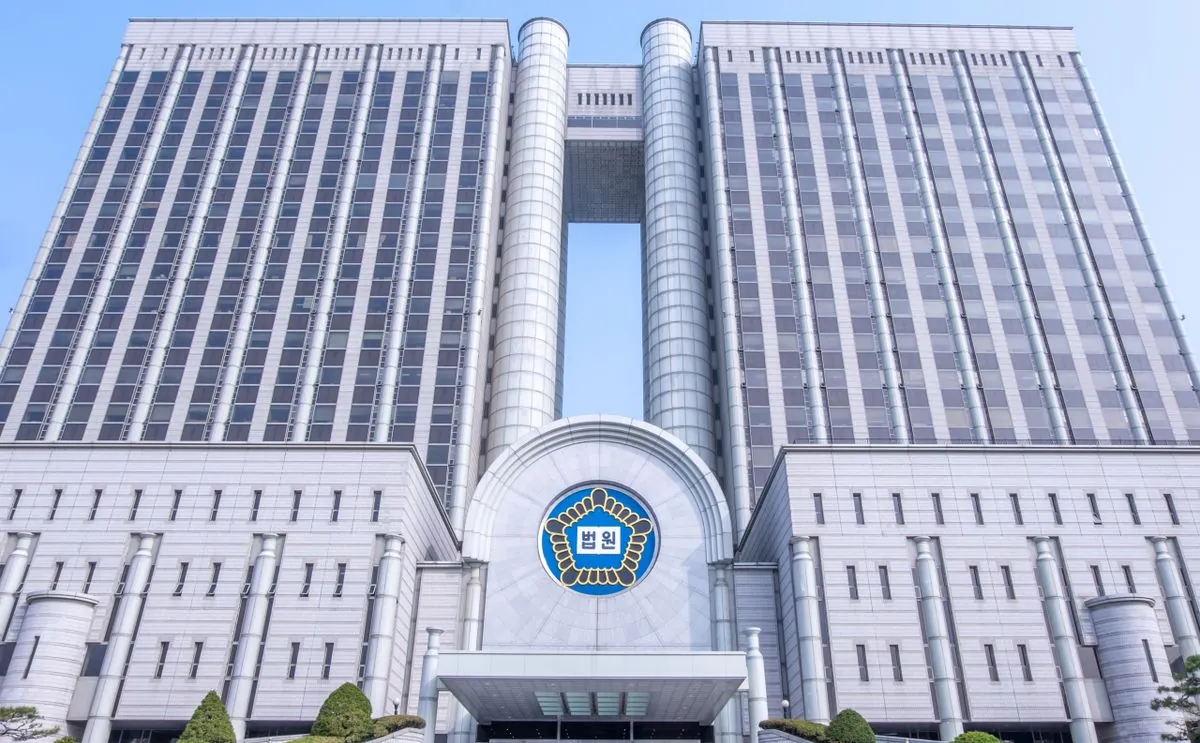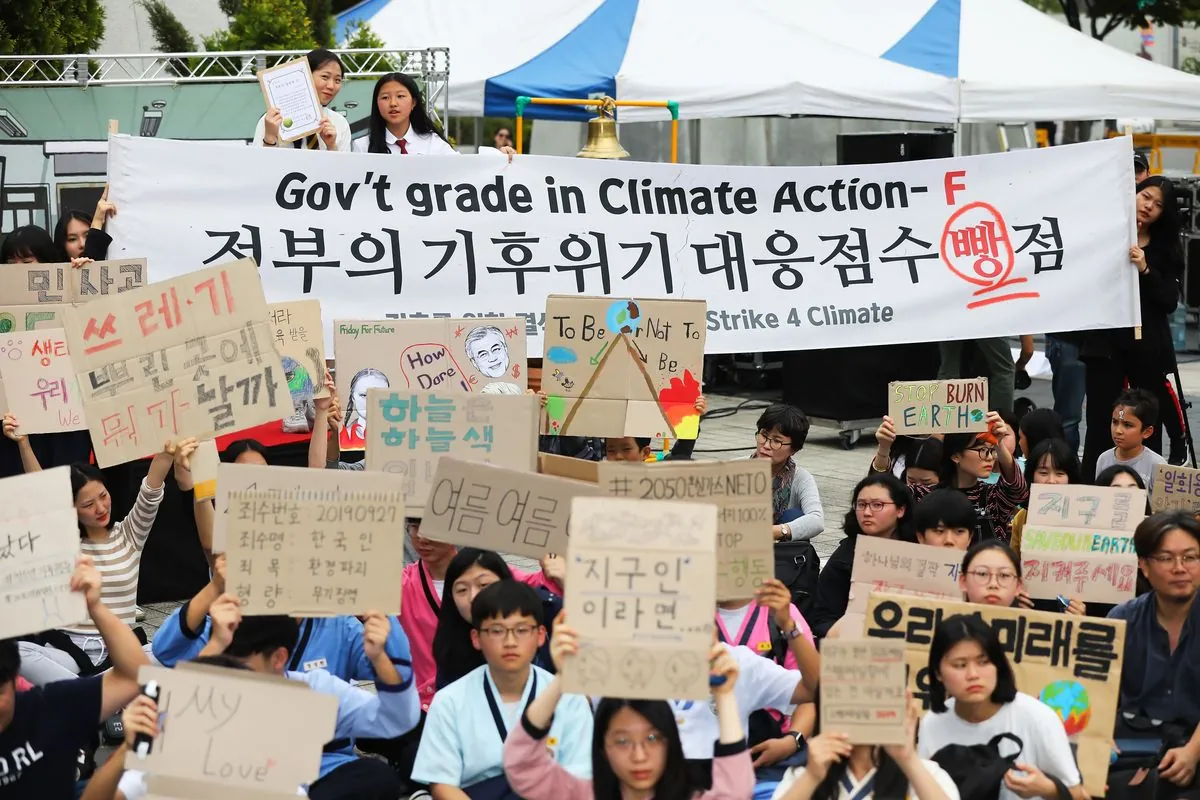South Korean Court Mandates Long-Term Climate Action Plans
South Korea's Constitutional Court orders government to establish emission reduction plans through 2049. Ruling partially favors climate campaigners but rejects calls for more ambitious 2030 targets.

In a significant development for climate policy, South Korea's Constitutional Court has issued a ruling requiring the government to formulate concrete climate action plans extending to 2049. This decision, announced on August 29, 2024, marks a partial victory for climate activists who initiated legal proceedings four years ago.
The court's verdict stems from four climate cases brought forward by 254 plaintiffs, many of whom were minors when they filed their complaints in 2020. These individuals contended that South Korea's current climate objectives were insufficient to address the impacts of climate change effectively.
At the heart of the dispute was South Korea's goal to reduce carbon emissions by 35% from 2018 levels by 2030. The plaintiffs argued that this target, along with the lack of implementation plans and post-2031 emission reduction strategies, violated their rights by exposing them to future environmental degradation.

While the court did not mandate a more ambitious 2030 target or require more detailed implementation plans, it did acknowledge the need for long-term planning. The ruling orders the government to modify its carbon neutrality law by February 28, 2026, to include emission reduction plans for the period from 2031 to 2049.
This decision aligns with South Korea's broader climate commitments. As the world's 10th largest carbon dioxide emitter, the nation has set a goal of achieving carbon neutrality by 2050. However, the path to this objective has been subject to scrutiny and criticism from environmental advocates.
"While we welcome the court's recognition of the need for long-term planning, we are disappointed that more immediate and ambitious targets were not mandated. The climate crisis demands urgent action, and every year of delay increases the challenges we face."
South Korea's climate policies have evolved significantly in recent years. The country joined the Paris Agreement in 2016 and has since announced several initiatives to combat climate change. These include plans to phase out coal power by 2050, increase the number of electric vehicles to 1.13 million by 2025, and reduce plastic waste by 50% by 2030.
Despite these commitments, challenges remain. As of 2019, renewable energy accounted for only 6.4% of South Korea's energy mix. To address this, the government has pledged to invest $61 billion in renewable energy by 2025 and aims to increase the share of renewable energy in its power mix to 20% by 2030.
The court's ruling underscores the growing importance of climate litigation as a tool for citizens to influence government policy. It also highlights the complex balance between ambitious climate goals and practical implementation challenges faced by nations worldwide.
As of the time of reporting, the South Korean government has not issued an official response to the court's decision. The ruling's impact on the nation's climate policy and its ability to meet its carbon neutrality goals remains to be seen.


































